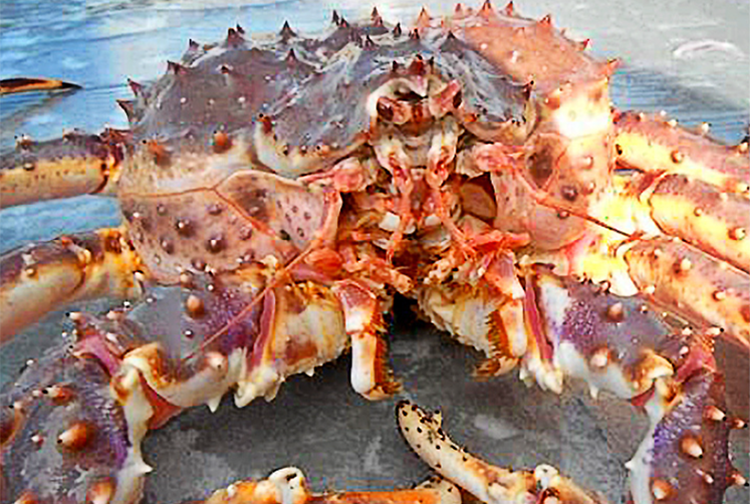The National Marine Fisheries Service denied a request for emergency action to close red king crab habitat areas to all fishing gears, ruling that “available evidence does not support a finding that the proposed emergency regulations would address the low abundance and declining trend of mature female Bristol Bay red king crab.”
The Alaska Bering Sea Crabbers association filed the emergency petition Sept. 28, days widespread fishery shutdowns were ordered in response to declining red king and opilio. The crabbers sought closures in red king crab savings areas, “to protect Bristol Bay red king crab and their habitat at a time of historically low crab abundance,” according to NMFS’ announcement Friday that the petition was rejected.
The red king crab savings area was established in 1996. It is permanently closed to bottom trawling but is open to pelagic trawling, pot fishing, and longlining. The crab fleet, facing a virtually complete shutdown, asked for a Jan. 1 to June 30 closure to keep away all gears, contending that all bycatch and habitat impacts need to be addressed.
In a response Friday afternoon, the Bering Seas Crabbers said NMFS is discounting the effects of other gear types.
"Crabbers are dismayed and deeply disappointed that NOAA Fisheries denied protections for dwindling crab stocks on the same day they opened pollock fisheries with increased harvest limits and no additional crab or habitat protections," the association said in a prepared statement Friday.
"It's unbelievable given the agency provided new information over 2022 showing the pollock fishery's gear is on the bottom up to 100 percent of the time and their area swept has increased in recent years, particularly in areas important for crab stocks and at times when crab are vulnerable with molting and mating," the group said.
"And this with gear that has the potential to be more damaging than bottom trawl gear which has made some modifications to reduce their bottom impacts. If we're not using the science and information available to manage these fisheries, then what are we using?"
The crabbers brought their appeal to the North Pacific Fishery Management Council at its December 2022 meeting, where the council heard a NMFS analysis of the proposal. The council declined to ask the Department of Commerce for the emergency closure, and NMFS officials took a similar line in their reasoning.
“The immediate benefits of emergency rulemaking in this case do not outweigh the value of advance notice, public comment, and deliberative consideration of the impacts on participants under the normal rulemaking process,” the agency said in its announcement.
The North Pacific council began action to develop management measures focused on reducing Bristol Bay red king crab mortality from groundfish fishing during years of lower abundance.
Direct losses from the crab harvest cancellations amount to $287.7 million, according to estimates from the Alaska Department of Fish and Game. state estimates. But total losses for crab dependent harvesters, processors, communities, and support businesses are widely expected to far exceed that; the Alaska Bering Sea Crabbers estimated in October that the cost could reach $500 million.
Meanwhile NMFS and Alaska DFG are supporting an urgent cooperative research project proposed by the Alaska Bering Sea Crabbers and the Bering Sea Fisheries Research Foundation, focused on Bristol Bay red king crab.
The project will use crabbers’ vessels as research platforms in the Red King Crab Savings Area beginning in March 2023 to collect data that could help inform management decisions as early as fall 2023.







